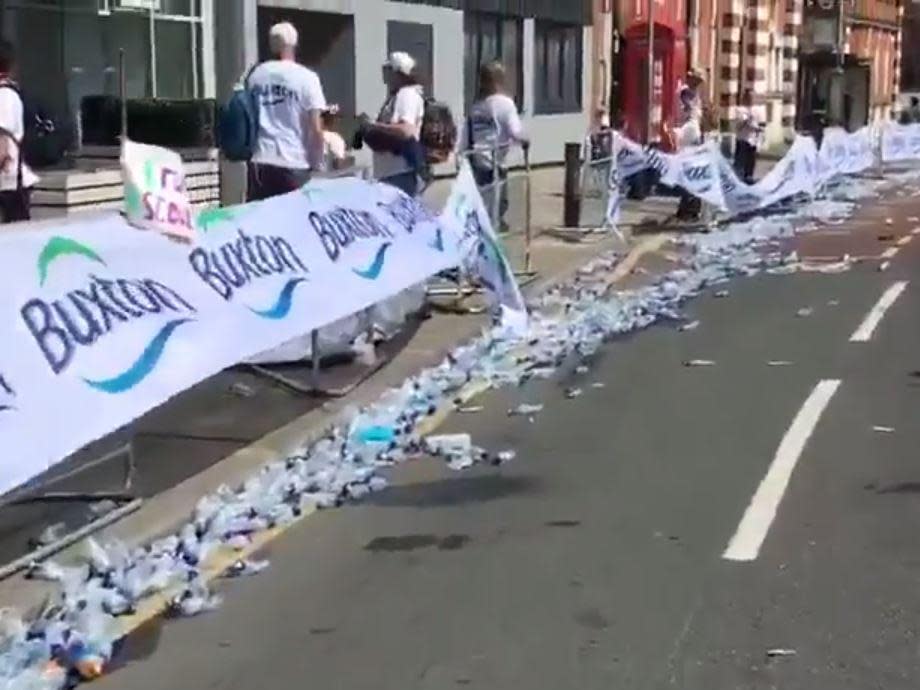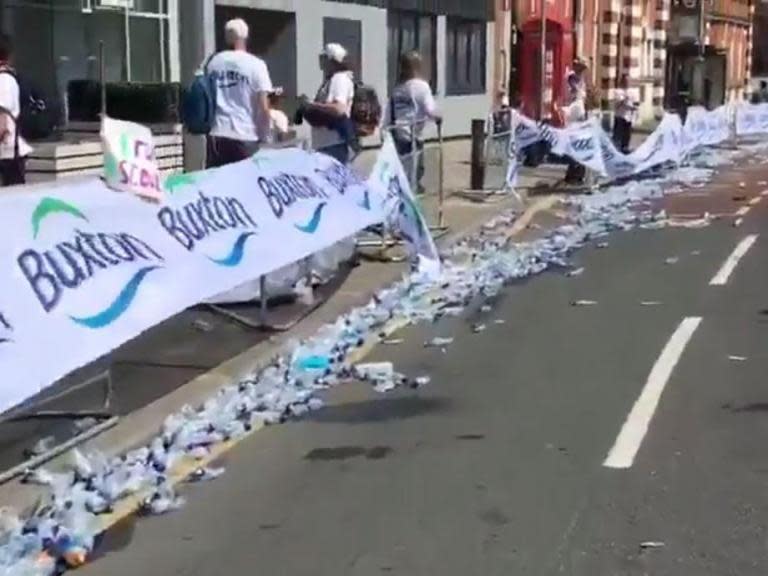Video shows sea of plastic bottles after London Marathon
Video of a street strewn with discarded water bottles in the wake of the London Marathon has stoked calls for the annual race to abandon the use of plastic bottles.
The sea of plastic was filmed and posted to Twitter by actress Charity Wakefield after marathon runners passed through Charlton on Sunday.
Ms Wakefield said that although the event had left her “so inspired”, she believed “single-use plastic has to stop”.
The footage showed hundreds of bottles on both sides of Woolwich Road, near an overpass.
“I cycled past this in Charlton minutes after the race, which represents a tiny stretch of the 26 mile track. We have to change,” Ms Wakefield added, saying she believed water for runners should be handed out in biodegradable vessels.
Other users said that trying to drink from a cup during a race could be difficult and potentially dangerous. “You need a bottle to allow you to carry it around,” said one.
Buxton Water, a sponsor of the marathon and the company that supplied the refreshments, replied to her message to say the bottles were “100 per cent recyclable”.
The company said they were “a safe and convenient way for runners to hydrate & currently the best solution for the distribution of water for 40,000 participants to the London Marathon within the very short window of road closures in London”.
The bottles themselves contain 20 per cent recycled material, Buxton said.
On Twitter it added: “In order to protect the safety of the runners and spectators during the event, runners are encouraged to drop their used bottles to the side of the road to prevent injury, used bottles are then collected by local authorities after the run, and then recycled.”
In recent months public awareness of the dangers posed to the environment by plastic has grown, particularly since the broadcast of the BBC’s Blue Planet II series.
Earlier this year, Scotland’s government said it would ban plastic straws, while businesses like JD Wetherspoon and Wagamama have already ended their use of the straws.
In March, researchers testing brands of bottled water for traces of microplastics found that “almost all were contaminated to some degree” with potentially harmful particles.
Tiny plastic particles are believed to have found their way into Earth’s food chains from the millions of tonnes of plastic waste dumped into the oceans every year, some of which breaks down and is consumed by marine animals.
Tackling plastic pollution is a cornerstone of the government’s 25-year environment plan, published earlier this year.
Buxton said on Twitter it was “working to develop a 100 per cent bio-based bottle”.



